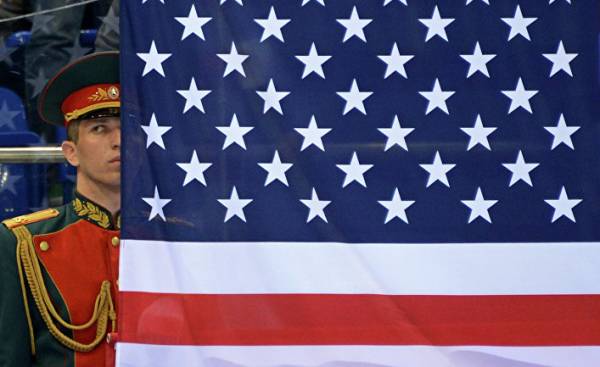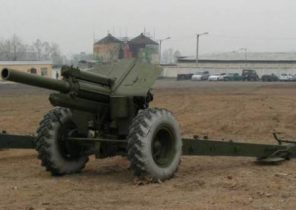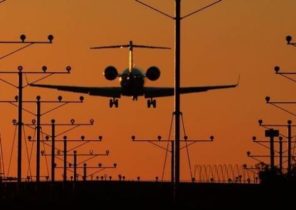
The Kremlin’s reaction to the new sanctions that the US recently imposed against Russia are likely to be asymmetrical.
From the point of view of Russia, these new sanctions, which were passed into law, will operate for a long period of time, therefore, Moscow has no incentive to listen to the demands of America. It is worth Recalling that an earlier Congress passed a package of sanctions, such as the amendment of Jackson-Vanik amendment of 1974, continued to operate even after the desired effect has been achieved. The amendment of Jackson-Vanik amendment formally continued to operate long after the collapse of the Soviet Union, until 2012, when its place was taken by the Magnitsky act.
Russia is unlikely to respond to U.S. sanctions in economic terms, but in geopolitical terms it is able to prevent the implementation of us interests. Moreover, if the US starts to supply weapons to Ukraine, or conduct a cyber attack against the Russian infrastructure, Russia can also resort to the means that will make the life of Washington is more more complex.
“In the economic sphere, we may see some limited counter-sanctions, said George Beebe (George Beebe), Director of programs in the field of intelligence Center for the national interest during the panel discussion on August 14. But in the field of intelligence, I think we are faced with the escalation. We are faced with the escalation of the confrontation that goes on between our intelligence services”.
Such a war between the intelligence services might jeopardize the American intelligence officers operating in Russia and worldwide, as noted by Beebe, who was formerly a senior analyst for the Central intelligence Agency. “We are faced not only with the expulsion of intelligence officers, said Bib. — Most likely, will intensify the persecution. This can be very serious because we are physically exposed to the threat of our people.”
Moreover, if reports that the Obama administration has ordered to implement cyber weapons in Russian infrastructure, true, Russian is likely to respond to such actions similar attacks against the U.S. infrastructure. “It is unlikely that Russian will passively observe from the sidelines, noted the Bib. — I believe that, most likely, they will inflict a retaliatory strike against our infrastructure, which, from my point of view, more vulnerable than Russian”.
Over the past few years, the United States had made some serious diplomatic errors, in the first place in Ukraine. Daniel Russell (Daniel Russell), President of Russian-American business cooperation Council and a former senior state Department official under the Obama administration, also spoke at the aforementioned panel discussion. According to him, the United States shouldn’t cede the initiative in the Ukrainian question of France and Germany, and it was necessary to assume a more active diplomatic role. Moreover, Washington should establish contacts with Moscow to resolve the Ukrainian crisis.
“Part of the focus should be on more active diplomacy, — said Russell. Some of us talked about the fact that the United States had to act more aggressively and take on a more significant role in resolving the Ukrainian conflict, and not to accept Normandy format, which was a European initiative”.
Even in the current impasse is possible to find ways to establish cooperation with the Kremlin in the Ukrainian question. “If you look at Ukraine, you will see that we need a more active, targeted diplomacy — diplomacy of the highest level — if we want to solve this problem,” added Russell.
But if the US continues to up the ante, taking decisions such as the decision to provide weapons to the Ukrainian government, then Russia will most likely try to complicate the life of the United States in other parts of the world. For example, Russia may provide weapons to Iran, North Korea or other regimes. “I think from the Russian point of view, such a response would be justified,” said Beebe.
In a sense, the impasse with Russia turns into a “spiral of escalation”, as both sides continue to take measures and countermeasures. “I don’t think we have reached the point of no return, but we’re close to her,’ said Bib. — I believe that the risks are very great, so great that we may find ourselves in a vicious circle, when domestic political factors in Moscow and Washington will force them to retaliate, resulting in the developing crisis which will be extremely difficult to control.”
In many ways, the current situation of the ways to establish cooperation between Russia and the U.S. not so much — even with those spheres where their interests coincide. According to Russell, the White house almost completely ceased to intergovernmental cooperation in 2014, which was a powerful blow to diplomatic cooperation between the two countries.
“I think one of the negative changes that have occurred since 2014 and have had a significant impact on intergovernmental cooperation was the decision of the Obama administration to stop the work of all groups at the level of the Presidential Commission and daily interaction between the government agencies at the political level,’ said Russell. — I do not think that restoring the work will be easy.”
However, there are a number of areas where Moscow and Washington can still work together. “There are several areas in which the interests of Russia and the USA coincide, and in which they can operate, noted the Bib. The difficulty lies in the fact that the political environment in both capitals can make this cooperation very problematic.”
Thus, cooperation between Washington and Moscow is still possible, however, for the foreseeable future it will be very hard to get out of the current deadlock.







